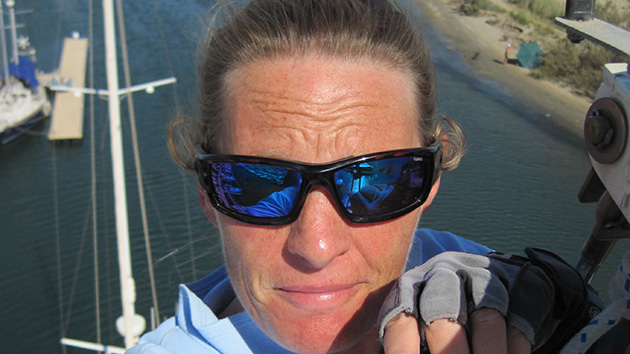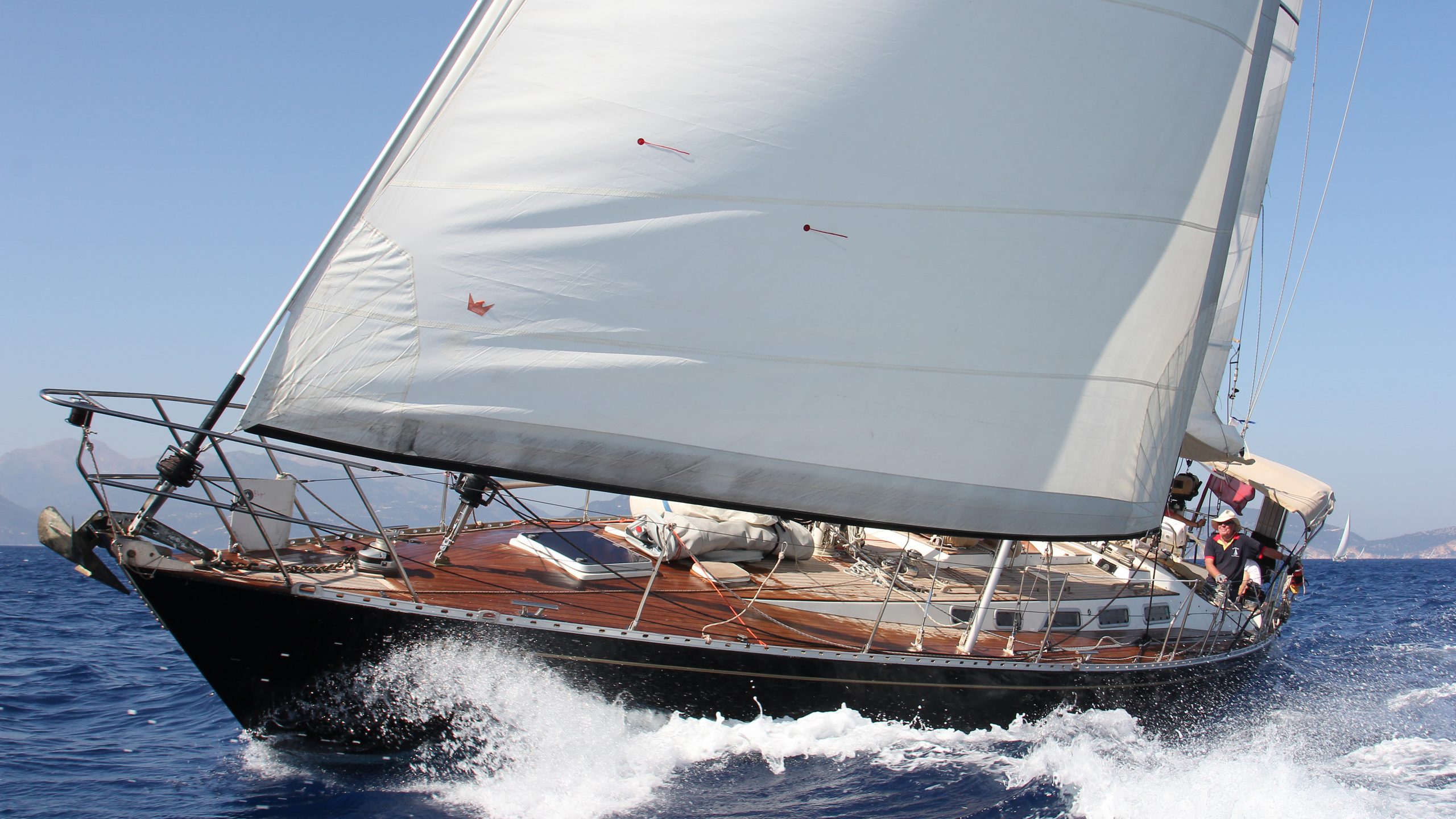Yesterday the sky turned red. Thick air hung heavily over us and there was an eerie half-light that turned the view across the bay into a sepia print. After a few hours everything was coated in fine sand. Everything.
Saharan dust being blown across the Mediterranean is not a new phenomenon, but here it usually arrives in the form of rain. Many times we have woken up on Skylax to find the transom has turned from black to orange – one time it was thick enough to obscure her name.
The thing is, our teak deck disguises the issue just long enough for you to innocently walk on it and cart red dust everywhere. Obviously, it usually happens when the boat is sparkling clean, and that is bad enough, but when it lands on a salty surface, it is so much worse! One time our sails were stained with the stuff when we headed west from the Cape Verde islands. No matter, we thought, one good squall and it will be gone. Was it heck!
But this time the dust arrived without the rain – just a miasmic fog of dust. Of course, it happened just days before the unofficial start of the season here in Greece, when boatowners and charter groups are busy with the final buffing and polishing before the off.

Cape Verde Islands. Photo: Thom D’Arcy
Here in Poros it is the East Med Multihull and Yacht Charter Show, and around the corner in Navplion they are hosting the Med Yacht Show. That’s an awful lot of boats that will need ridding of the red stuff before the weekend.
Each spring, when we return to our boats, we expect them to have accumulated dust and grime over the winter. Several washdowns and a polish later it is all forgotten as we race to get launched and out on the water.
Sometimes, though, the things that fall from the sky require serious persistence to eradicate. In Turkey, it was pine needles. The boat was parked next to a stand of trees which lent us valued shade as we laid up. The next spring we swept the decks and apparently all was well, but have you any idea how many places on a boat that pine needles can hide in? Under the genoa sheet track was clever, but inside the actual sheet cars was genius. It was literally months later that we were still finding pine needles! In the big scheme of things, it wasn’t so bad, and it became a bit of a running joke.
Article continues below…
‘Rod had single-handedly raised the price of shellfish in the San Blas by about 300%’ – Lu Heikell
Can we agree that it’s an old myth that sailors survive entirely on Fray Bentos pies and ‘pot mess’? Certainly…
How to get some ‘me’ time at sea – Lu Heikell
Liz Wardley, Volvo Ocean Race legend, famously quipped she was just getting some ‘me time’ while suspended 30-odd metres above…
Worse was the morning we woke up in Syracuse, Sicily, to find the entire boat caked in volcanic ash. Mount Etna had burped overnight, and the result was a black sticky mess. As most of the hatches had been open, there was plenty down below too. That was a proper clean up job.
Probably the worst experience was after we had left Skylax in a yard not far from a petro-chemical installation. The fallout was truly foul and took a serious amount of work to get rid of. These days she has a winter cover which keeps the worst at bay until we return.
Whether it is salt, sand or general dirt, keeping Skylax’s black hull looking good can be difficult, but a superyacht skipper friend once shared his secret. Vinegar. Preferably white vinegar. A swab of the hull using a solution of 5-10% vinegar is the magic potion to make it shine. Rinse off with fresh water. Cheap and eco-friendly. You’re welcome!
Enjoyed reading this?
A subscription to Yachting Monthly magazine costs around 40% less than the cover price, so you can save money compared to buying single issues.
Print and digital editions are available through Magazines Direct – where you can also find the latest deals.
YM is packed with information to help you get the most from your time on the water.
-
-
- Take your seamanship to the next level with tips, advice and skills from our experts
- Impartial in-depth reviews of the latest yachts and equipment
- Cruising guides to help you reach those dream destinations
-
Follow us on Facebook, Twitter and Instagram.






